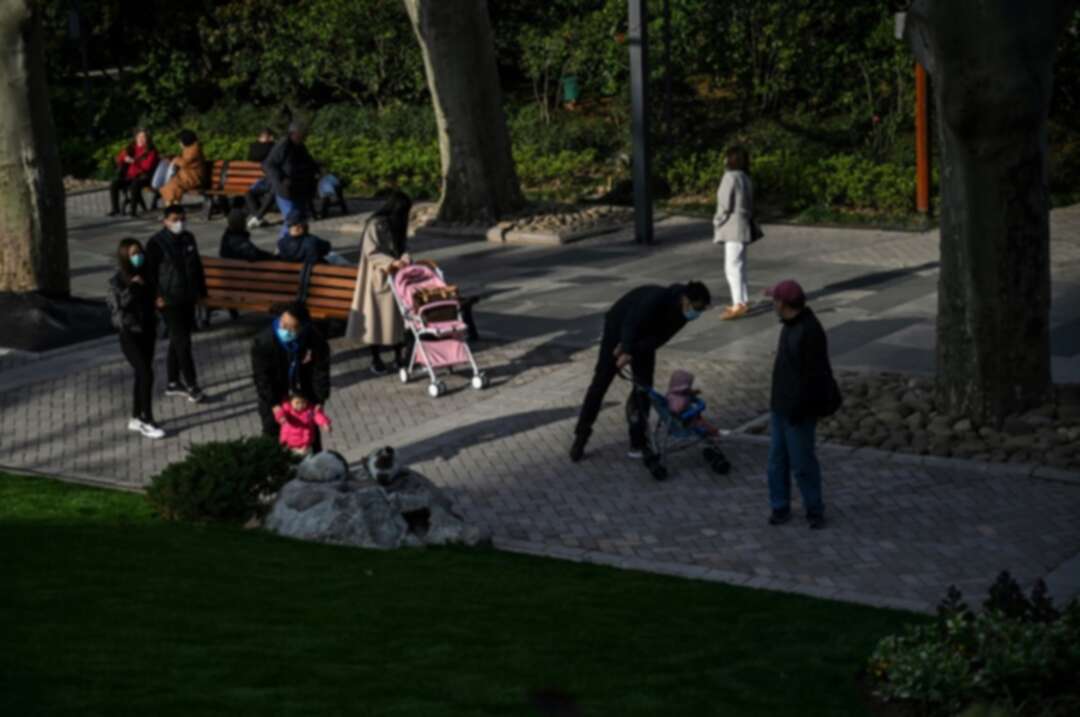-
As world cowers, China glimpses coronavirus aftermath

Restaurants are reopening, traffic and factories are stirring, and in one of the clearest signs yet that China is awakening from its coronavirus coma, the country's "dancing aunties" are once again gathering in parks and squares. world
As the rest of the world runs for cover, China -- where the virus first emerged -- is moving, guardedly, in the opposite direction as domestic infections fall to nil following unprecedented lockdowns and travel restrictions.
But ordinary life is far from normal.
Masks and temperature checks are essential to enter most places and many eateries are banning diners from facing each other in a mass "social distancing" campaign -- no easy task in the world's most populous nation.
Beijing retiree Wang Huixian was among a dozen women practising the national pastime of dancing in unison to music from portable speakers in a public park -- but now with a gap of three metres (10 feet) between them.
During the epidemic, everyone was very tense and afraid. So we want to relax now," said Wang, 57.
But she added: "Everyone is cautious and keeping a distance from each other to avoid getting infected." world
Alongside more than 3,200 deaths and over 81,000 total infections, the coronavirus outbreak has left further scars.
China, the world's second-largest economy, was shut down for weeks, with factories silent and massive cities locked down.
The pain from that is expected to persist, with a surge in joblessness and many businesses gone bust.
Most of the country is now slowly lifting restrictions and people are returning to work, unlike many Western countries where governments have ordered sweeping restrictions not seen during peacetime.
Many European countries are in near-total internal lockdown, and popular tourist spots are deserted.
But after weeks of empty streets and citizens sheltering at home for safety, Shanghai has transformed in recent days.
Cafes and some tourist sites have reopened, and residents of China's biggest city are re-emerging for tai chi in the park, or to take selfies along the riverfront under bright spring sunshine.
"I was very scared. A sense of fear persisted," said 50-year-old Zhang Min, the owner of an office-supply company, while strolling in a Shanghai park.
"But now all is good... not like the people overseas who are engaged in panic-buying." world
The flow of daily commuters into Shanghai's financial district is picking up and some inter-provincial travel restrictions have eased.
However, many provinces and cities like Shanghai now require citizens to show a downloaded QR code on their mobile phone that rates them as "green", "yellow" or "red" -- based on tracking of whether they visited a high-risk zone -- before entering many businesses.
"My feeling is that people with (virus) issues can't come out, but people who can are safe, so we're reassured," child-care worker Lai Jinfeng, 41, said while strolling the Shanghai's famous Bund.
People shrink from an offered handshake, many restaurants have removed half their chairs to disperse customers, and other restrictions on large gatherings remain in place.
And the now-ubiquitous face mask is being worked into cosmetics routines, with online beauty influencers instructing millions of women on applying make-up only to the upper half of the face, without staining the mask itself. world
President Xi Jinping declared during a March 10 visit to the still locked-down epicentre city of Wuhan in Hubei province that China had "turned the tide," and a top economic official said Tuesday that 90 percent of businesses outside Hubei were operating again.
But as China emerges from the worst of the virus on its soil, the costs of the pandemic will become clearer in the coming weeks and months, analysts say.
"Basically before the epidemic, last year, my business was very good, but not now," said Cai Qizhen, 52, who runs a small cobbler's shop in Shanghai.
"Now basically I don't come in the morning... and I'm finished by 3 pm with nothing left to do."
source: AFP levant
You May Also Like
Popular Posts
Caricature
BENEFIT Sponsors BuildHer...
- April 23, 2025
BENEFIT, the Kingdom’s innovator and leading company in Fintech and electronic financial transactions service, has sponsored the BuildHer CityHack 2025 Hackathon, a two-day event spearheaded by the College of Engineering and Technology at the Royal University for Women (RUW).
Aimed at secondary school students, the event brought together a distinguished group of academic professionals and technology experts to mentor and inspire young participants.
More than 100 high school students from across the Kingdom of Bahrain took part in the hackathon, which featured an intensive programme of training workshops and hands-on sessions. These activities were tailored to enhance participants’ critical thinking, collaborative problem-solving, and team-building capabilities, while also encouraging the development of practical and sustainable solutions to contemporary challenges using modern technological tools.
BENEFIT’s Chief Executive Mr. Abdulwahed AlJanahi, commented: “Our support for this educational hackathon reflects our long-term strategic vision to nurture the talents of emerging national youth and empower the next generation of accomplished female leaders in technology. By fostering creativity and innovation, we aim to contribute meaningfully to Bahrain’s comprehensive development goals and align with the aspirations outlined in the Kingdom’s Vision 2030—an ambition in which BENEFIT plays a central role.”
Professor Riyadh Yousif Hamzah, President of the Royal University for Women, commented: “This initiative reflects our commitment to advancing women in STEM fields. We're cultivating a generation of creative, solution-driven female leaders who will drive national development. Our partnership with BENEFIT exemplifies the powerful synergy between academia and private sector in supporting educational innovation.”
Hanan Abdulla Hasan, Senior Manager, PR & Communication at BENEFIT, said: “We are honoured to collaborate with RUW in supporting this remarkable technology-focused event. It highlights our commitment to social responsibility, and our ongoing efforts to enhance the digital and innovation capabilities of young Bahraini women and foster their ability to harness technological tools in the service of a smarter, more sustainable future.”
For his part, Dr. Humam ElAgha, Acting Dean of the College of Engineering and Technology at the University, said: “BuildHer CityHack 2025 embodies our hands-on approach to education. By tackling real-world problems through creative thinking and sustainable solutions, we're preparing women to thrive in the knowledge economy – a cornerstone of the University's vision.”
opinion
Report
ads
Newsletter
Subscribe to our mailing list to get the new updates!






















